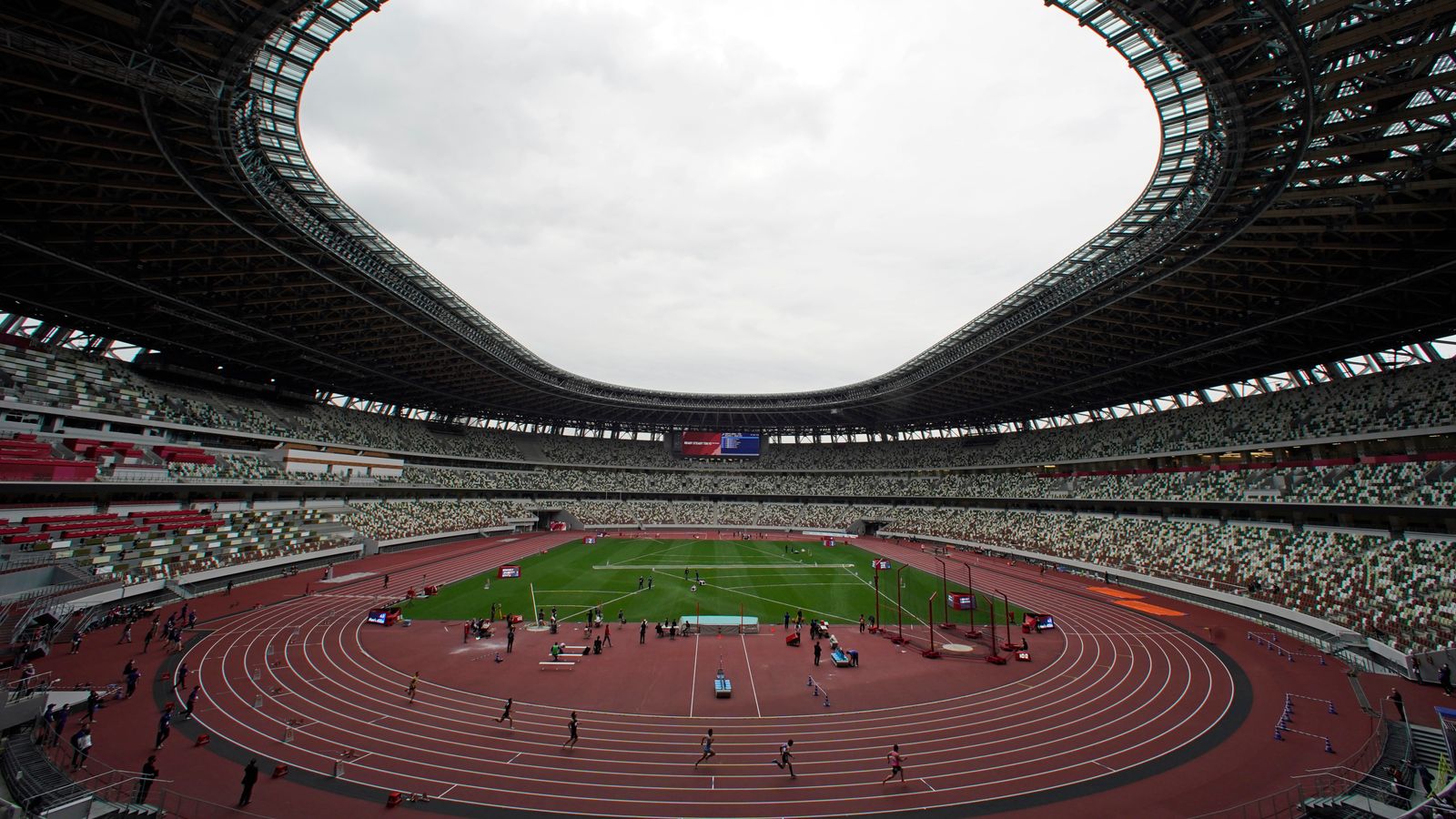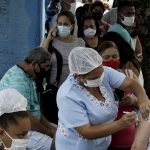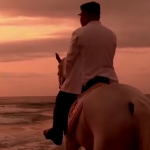This summer’s Tokyo Olympics will go ahead without spectators after a surge in coronavirus cases, organisers have announced.
The widely expected move was made following talks between the government, Tokyo organisers and Olympic and paralympic representatives.
Japan has now declared a coronavirus state of emergency for the capital that will run throughout the event.
Overseas fans had already been barred from attending the Games.
Public viewings of the Games have been cancelled and restaurants will be asked to stop serving alcohol under the state of emergency.
Seiko Hashimoto, president of this year’s Games, said the situation was “regrettable” and apologised to those who had bought tickets.
Japan’s Prime Minister Yoshihide Suga said the move is essential to prevent Tokyo, where the highly infectious Delta COVID-19 variant was spreading, from becoming the source of another wave of infections.
The ban all but robs the Tokyo Games, which are scheduled to run from 23 July to 8 August, of their last hope for pomp and public spectacle.
Once seen as a chance for Japan to stand large on the global stage after a devastating earthquake a decade ago, the showpiece event was delayed by the pandemic last year and has been hit by massive budget overruns.
Medical experts have said for weeks that having no spectators would be the least risky option, amid widespread public fears that an influx of thousands of athletes and officials will fuel a fresh wave of infections.
The experts have welcomed the decision to hold the Olympics without spectators but cautioned that the ban will not completely eliminate the risk of a rebound in COVID-19 cases.
Yuki Furuse, a Kyoto University medical professor working with the government’s coronavirus experts group, said: “I, of course, support ‘no spectators’ but concerns will never disappear as long as we have a big event, like the Games, along with holidays and the vacation season.”
Medical experts have also warned that risks from people’s behaviour around Olympic events, like drinking and dining together, were tougher to control than those inside the venues.
Fumie Sakamoto, the infection control manager at St Luke’s International Hospital in Tokyo, said: “It’s not hard to imagine that a lot of people will be in high spirits after the Games and want to have a drink with others.”
“There will be a lot of opportunities for virus transmission outside the venues.”






















